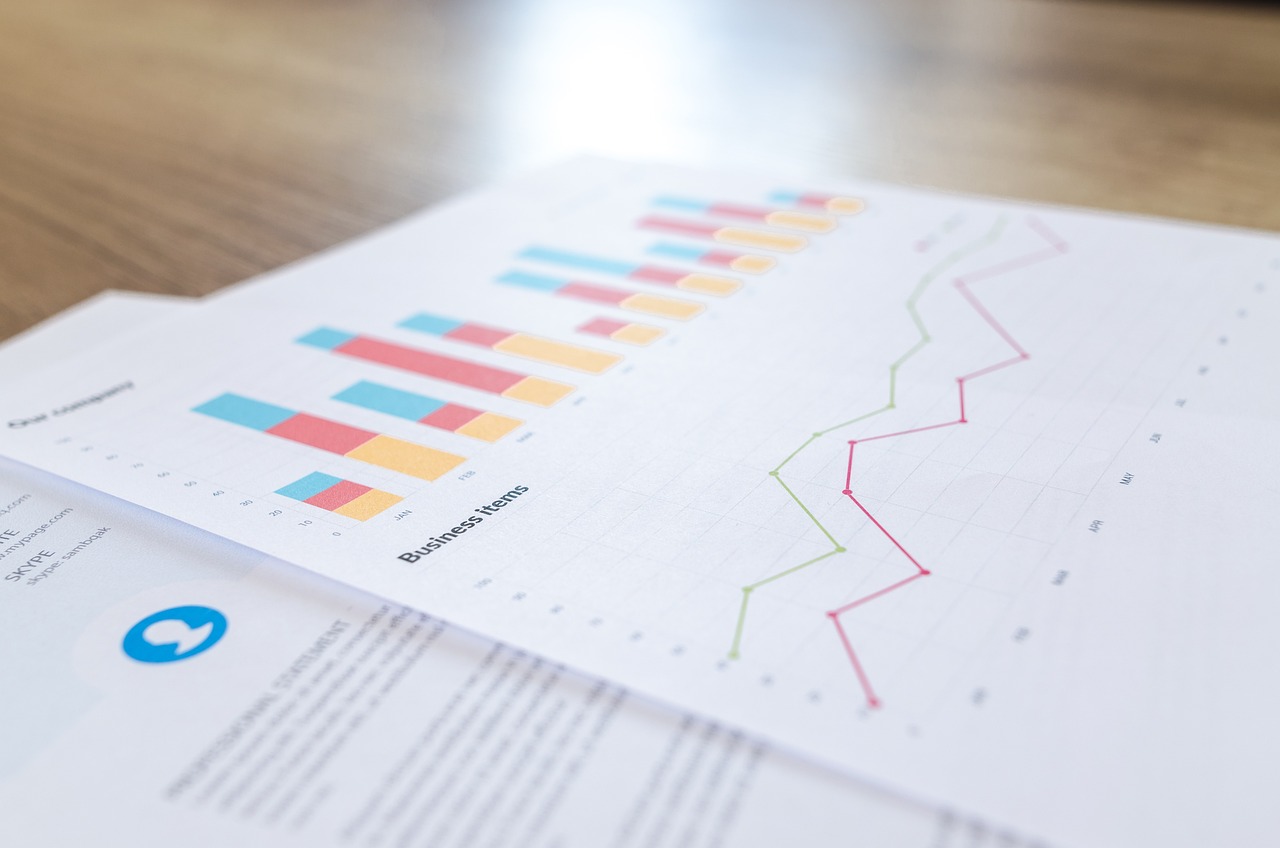

Have you ever wondered what the difference is between a budget and a forecast? We certainly have! With our expertise and experience, we’d like to share our thoughts in this article. Which metric is the one that you need to focus on the most? Or, do you need a healthy mix of the two?
What is a budget?
A budget is a financial plan that outlines projected income and expenses over a specific period of time. It is a tool used to track and manage finances, providing a roadmap for allocating resources effectively and achieving financial goals.
Budgets typically cover a variety of categories, including income, expenses, savings, and investments. The process of creating a budget involves estimating and projecting income from various sources, such as salaries, investments, or business revenue. Expenses are then categorized and allocated based on priorities and financial obligations, such as housing, transportation, food, utilities, debt payments, entertainment, and savings.
The main purpose of a budget is to ensure that spending remains within means and aligns with financial objectives. By setting limits and monitoring expenses, individuals and businesses can make informed decisions about how to allocate their resources, identify areas for potential cost-cutting or saving, and work towards long-term financial stability and growth.
Budgets can be created for various timeframes, such as monthly, quarterly, or annually, depending on the specific needs and circumstances of the individual or business. Regular monitoring and adjustment of the budget are essential to reflect changing financial situations and goals.
- Recommended Reading: What is a Rolling Budget?
- Recommended Reading: What is a Static Budget?
- Recommended Reading: What is a Cash Budget?
What is forecasting?
Forecasting in business refers to the process of making predictions or estimations about future business outcomes, trends, and events based on available data, such as historical context. It involves analyzing past and present information to make informed projections about future performance.
Business forecasting serves several purposes, including:
- Planning
- Budgeting
- Financial management
- Inventory management
- Risk assessment
- Market analysis
- Performance evaluation
Business forecasting methods can range from simple techniques, such as market analysis and extrapolation, to more complex approaches involving statistical models and predictive analytics. The choice of forecasting method depends on the nature and industry of the business.
Overall, business forecasting provides valuable insights that aid in decision-making, resource management, and strategic planning, allowing businesses to adapt to changing market conditions and enhance their chances of success.
What are the key differences between budgets and forecasting?
While budgets and forecasting are related concepts in business, there are key differences between them. Here are the main distinctions:
Purpose
Budgets: Budgets are developed to set financial targets, allocate resources, and control spending. They provide a detailed plan for income and expenses over a specific period, typically focusing on short-term financial management and operational control.
Forecasting: Forecasting aims to predict future business outcomes and trends based on available data and analysis. It helps businesses make informed decisions, plan for the future, and identify potential opportunities or risks.
Timeframe
Budgets: Budgets are typically created for a specific period, such as a month, quarter, or year. They focus on short-term financial planning and provide a roadmap for managing resources within that timeframe.
Forecasting: Forecasting can cover both short-term and long-term horizons. It involves making predictions about future business performance, market trends, and other factors that extend beyond the specific period covered by budgets.
Level of detail
Budgets: Budgets are usually more detailed and specific, breaking down income and expenses into various categories. They include specific line items and allocate resources to different areas of the business, providing a comprehensive overview of financial plans.
Forecasting: Forecasts may be less detailed and granular compared to budgets. They focus on high-level predictions and trends, providing a broader outlook on business performance without necessarily delving into specific line items or resource allocation.
Flexibility
Budgets: Budgets are often considered more rigid and inflexible. Once a budget is set, it serves as a guideline for financial decision-making and spending control. Deviations from the budget may require justification or approval.
Forecasting: Forecasts are more flexible and adaptable. They provide insights into future possibilities and can be revised or adjusted as new information becomes available. Forecasts are not as binding as budgets and allow businesses to respond to changing circumstances.
Usage
Budgets: Budgets are mainly used for financial planning and analysis, monitoring performance against targets, and controlling spending. They help businesses ensure that resources are allocated effectively and financial goals are met.
Forecasting: Forecasting is used for strategic planning, decision-making, and identifying potential opportunities or risks. It helps businesses anticipate market trends, assess growth prospects, and make informed business choices.
While budgets and forecasting have different purposes and characteristics, they are often interrelated. Forecasts can serve as inputs for budgeting processes, providing a basis for setting financial targets and resource allocation. Regular forecasting can also be used to monitor performance against budgeted figures and make necessary adjustments.
What are the benefits of budgeting?
Business budgets offer several benefits. Here are some of the key advantages:
- Financial planning: Budgets provide a structured framework for financial planning. They help businesses set specific goals and align financial activities with overall strategic objectives.
- Resource allocation: By defining priorities, budgets help to ensure that resources are utilized in the most efficient and effective way.
- Expense control: By setting spending limits and tracking actual expenditures against budgeted amounts, businesses can identify areas of overspending or potential cost-saving opportunities.
- Decision-making: Budgets help businesses evaluate the financial feasibility and impact of potential initiatives. Budgets facilitate informed decision-making by providing insights into the financial implications associated with different options.
- Performance measurement: By comparing actual financial results against budgeted figures, businesses can assess their performance and take action if necessary. Budgets provide a basis for evaluating the financial health and efficiency of the business.
- Goal setting: Clear budgetary targets provide employees with a sense of direction and purpose. Budgets can be used to establish performance incentives or rewards tied to achieving financial targets.
- Financial stability and growth: By providing a systematic approach to financial management, budgets contribute to the overall stability and growth of the business
What are the benefits of forecasting
Business forecasting also offers several benefits. Here are some key advantages:
- Planning for the future: By analyzing trends, market conditions, and other relevant factors, businesses can make informed predictions about future demand, sales, and business performance.
- Decision-making: Forecasting helps businesses evaluate the potential outcomes and risks associated with different courses of action. It helps make informed decisions about critical business choices.
- Risk management: By considering various scenarios and analyzing market conditions, businesses can assess the impact of risks on their business performance. This enables the development of contingency plans to mitigate potential negative outcomes.
- Financial planning: Forecasts provide financial insights for businesses to develop accurate budgets and financial strategies. Forecasts aid in identifying potential gaps or challenges and facilitate better decision-making.
- Market analysis: Forecasting involves analyzing market trends. This helps businesses understand the market landscape, identify emerging opportunities, and anticipate shifts in customer preferences.
- Performance evaluation: By comparing actual results to forecasted figures, businesses can assess their performance, identify deviations, and take corrective actions. Forecasts provide a basis for measuring the effectiveness of strategies and making adjustments as needed.
- Investor relations and funding: Accurate forecasting enhances investor confidence and facilitates funding opportunities. By providing a clear outlook on business performance and growth potential, forecasts can better communicate a business vision, attract investors, and secure funding for expansion.
Using both budgeting and forecasting for financial planning
Using both budgeting and forecasting together for financial planning provides a comprehensive approach to managing the financial aspects of a business. The combination of the two allows for flexibility and adjustments as new information becomes available. Forecasts can be updated and refined, enabling businesses to adapt their budgets to reflect changing market conditions or internal factors.
By combining budgeting and forecasting, businesses develop robust financial plans that encompass short-term operational goals and long-term growth strategies. This integrated approach improves decision-making, resource allocation, financial control, and performance evaluation.

Tracking budgets and forecasts in a financial modelling tool
A financial modelling tool can offer numerous benefits for budgeting and forecasting processes, including improved accuracy, scenario analysis capabilities, visualization and reporting, collaboration features, and integration with other systems. These tools can enhance decision-making and provide valuable insights into your business’s financial future. Learn more about these features with Brixx. You’ll soon find you can prepare your budgets and forecasts all in one place – without the mess of spreadsheets! Get in touch to learn more.














